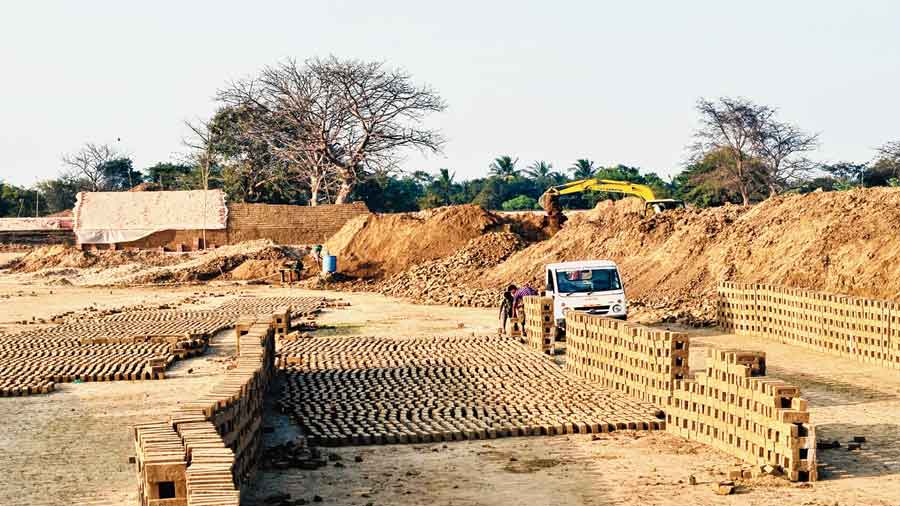The All India Brick and Tiles Manufacturing Federation has decided to stop the production this year at around one lakh units, including 8,000 in Bengal.
The strike was announced in the light of a failed month-long effort to get the Centre to lighten taxes on the industry and following a reported meeting of its members with Union finance minister Nirmala Sitharaman in September that yielded no result.
The developments come in the wake of a recent hike in GST on coal to 6 per cent from 1 per cent, along with the independent price rise of coal to Rs 20,000 a quintal up from Rs 9,000 in a span of less than three years.
The strike, if implemented, is set to affect over 15 lakh employees and labourers in Bengal. “On top of everything, there is now a GST on wages as well. We want to go on strike because we can’t afford the production cost at all. Our strike at this point is more of an inevitability than a protest,” said Ashok Kumar Tiwari, the president of the federation.
According to Tiwari, he, along with few others of the federation, had met Sitharaman on September 5.
“She heard our plea and was apprised of the situation of the industry after the hike in GST. But she is yet to give a clear assurance that the government would take any action in favour of us,” he added.
Tiwari said the coal ministry had also been formally apprised of the situation. The Bengal chapter represents roughly 8,000 manufacturing units, all of which may go on strike. Tiwari explained that the traditional brick industry was a linchpin for construction and the alternative brick industry had not seen much uptake in the country.
“We are still awaiting intimation from the ministry regarding any constructive steps on their part,” he said.
Brick kilns usually start the production in November and most workers are agriculture labourers who earn additional income after the completion of paddy harvesting.
“Else, the sheer numbers involving workers and families in such an industry nationwide would be massive,” said federation spokesperson Syed Sabbir Ahmed.
Sources have said nowadays, bricks made of fly ash are used for construction in urban areas, including Calcutta. But a large part of the construction sector still depends on traditional bricks that are made by burning clays, said the sources.











